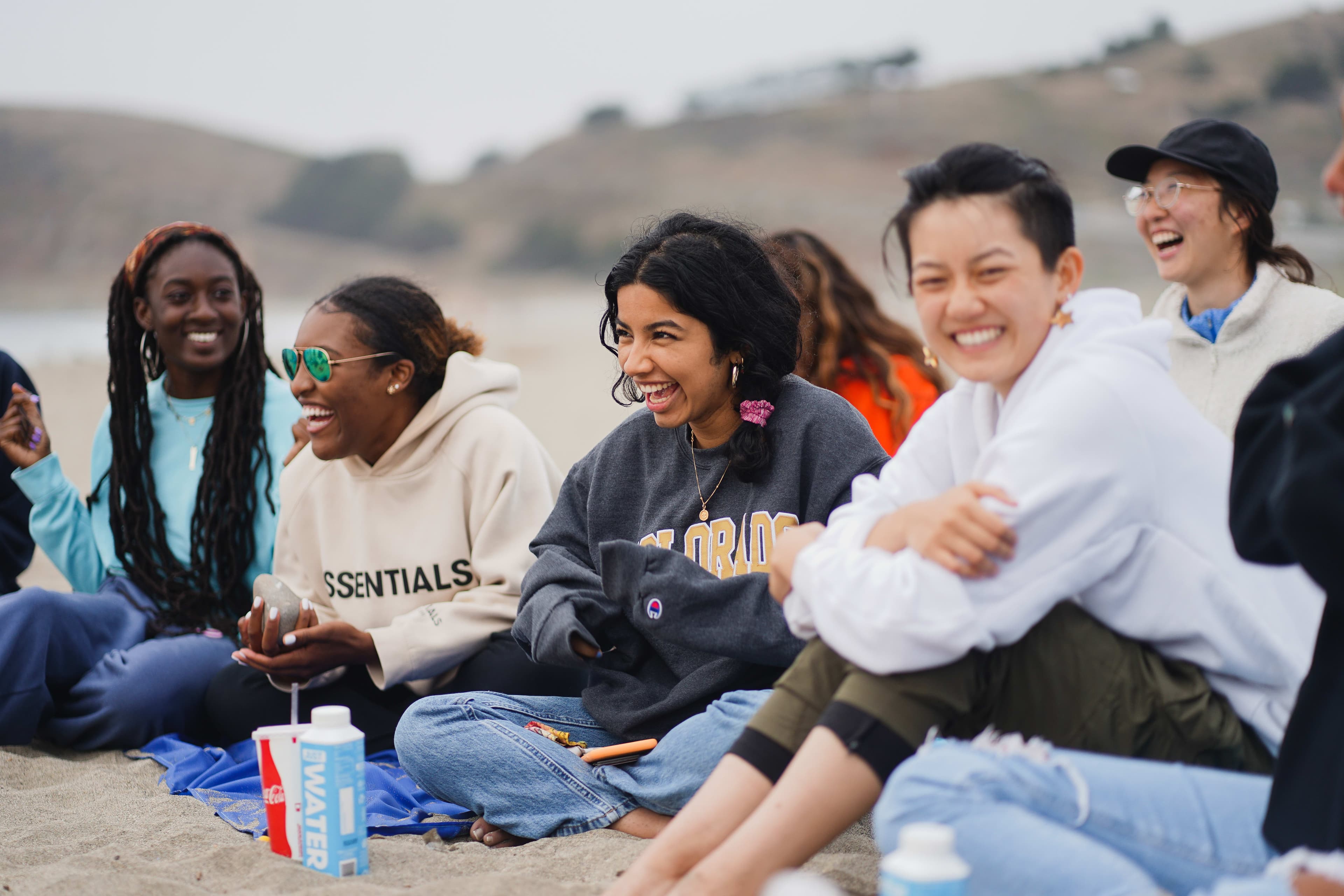Education
Every child deserves an education that will prepare them to thrive in a competitive and rapidly changing world.
Approach
We invest in people, tools, and models—partnering with educators, communities, and schools to better prepare young people for all the future has to offer. Emerson Collective is proud to support College Track and XQ, two organizations also founded by Laurene Powell Jobs, which focus on high school as the fulcrum for change in the lives of individual students and across the education system. Together, we work to deliver on the promise of public education to prepare students for the high-demand, high-wage jobs of the future.
Q and A With Russlynn
Ali

Managing Director, Education, Emerson Collective, and CEO, XQ
Questions and answers
Talk about why high school is so pivotal for setting up people for success.
Teenage brains are primed to learn, so let’s make sure high schools are a place where young people are being well prepared for the high-demand, high-wage jobs of the future, and that they are given the tools to grow into full civic participants, critical thinkers, generous collaborators, and lifelong learners. High school transformation is our country’s education moonshot—and it has never been more urgent to get it done.
How does the work of the Education team serve the Collective’s mission of an equal and just America?
Everything we do is based on our belief that transforming high schools makes everything else stronger—our entire education system, our communities, our workforce, and our country. There isn’t a one-size-fits-all answer for every community, so we partner with educators, students, families, and communities across the country to develop promising, equity-driven models like the XQ schools. And we support College Track, a program that has closed the gap between high school and higher education for thousands of students. We also invest in and design resources for educators, families, students, and communities to unlock the promise of high-quality education for everyone.
What does it mean to “rethink high school?” And how are communities doing it?
“Rethinking high school” starts with an empowered community owning and building a vision, in collaboration with educators. And because we believe that everything begins with students, and that true progress happens when we focus on their needs above everything else, we ask what young people need to really thrive in today’s complex and rapidly changing world. Since 2015, XQ has engaged with communities around this question. More than 10,000 people in 50 states and D.C. formed teams during the inaugural XQ Super School Challenge. Teams like Crosstown High in Memphis and Iowa BIG in Cedar Rapids started with community challenges they believed high schools could solve. Others, like Grand Rapids (MI) Public Museum School and Latitude High in Oakland, sought access to open community assets for their high school students. And schools like Elizabethton (TN) High School, Washington (D.C.) Leadership Academy, and Purdue (IN) Polytechnic High School aimed to eliminate barriers between high school, college, and career. Today, XQ schools are realizing a collective vision for the future of high school.
Talk about education as a civil rights issue. How does EC’s work take that philosophy to its core?
From Brown v. Board of Education and the Little Rock Nine to Ruby Bridges and the student sit-in movement, there’s a reason President Obama once said, “The story of the civil rights movement was written in our schools.” Education is an indelible right that must be treated as a universal standard by every American, for every student, at every high school. But for students of color or from low-income families, opportunity gaps not only persist but also continue to widen. The most recent National Assessment of Educational Progress (NAEP) report card found that only about half of all students, and fewer than a quarter of Black and Hispanic students, graduate from high school ready for college or a career. This has real consequences, and our nation will never reach its full promise until every student reaches theirs.
What does impact look like?
Impact looks like 48 students of color from Purdue Polytechnic High School’s first graduating class accepted to Purdue University—four times the number the college has ever accepted from all of Indianapolis. It looks like 94% graduation rates at Brooklyn Lab for students with disabilities and 100% for English-language learners, compared against state averages of only 61% and 39%. It looks like Washington Leadership Academy single-handedly tripling the number of Black girls passing the Advanced Placement Computer Science Principles exam in all of the District of Columbia. Impact looks like Rhode Island taking up the work of high school transformation in all 64 of its public high schools. Overall, impact looks like more students, educators, and families than ever pushing for change; we will not succeed until we satisfy that demand.

